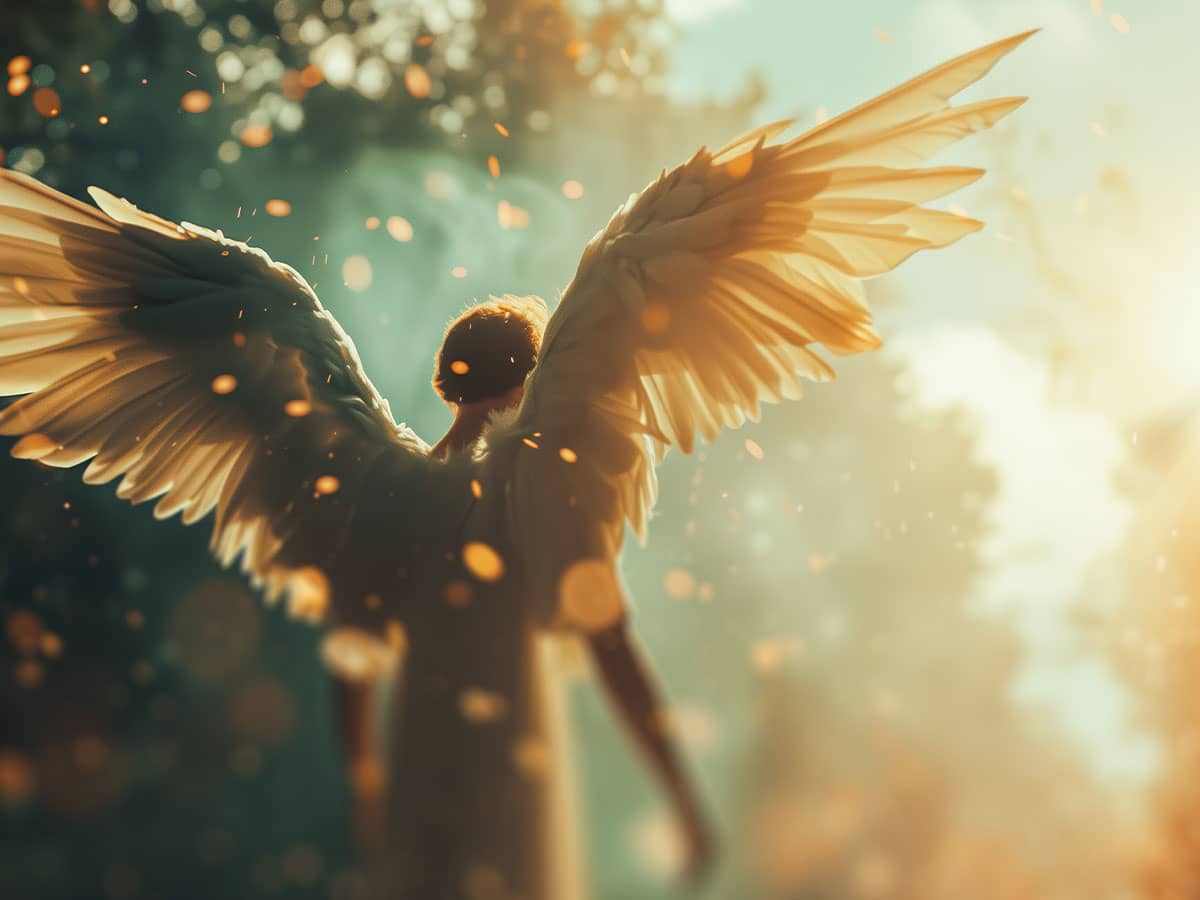Self-blame immobilizes us, preventing us from looking for solutions. We obsess over what we've done wrong. Like deer caught in the headlights, we can't run right or left. We stand still, waiting to be hit.
Blame has been around a long time. More than 3000 years ago, the writer of the Book of Job came up with a solution to self-blame.
Job was a man abundantly blessed by God. According to the Bible, he had ten children, many servants, and thousands of sheep, camels and oxen. He was considered the "greatest of all people of the East."
Satan grew jealous and demanded that God test Job. Take everything away from this favored human being, said the Adversary, and Job will curse God for it.
But that's not what happened.
One day, when Job was at home, resting and reflecting on his blessings, servants arrived to announce that all of Job's possessions and loved ones had been destroyed-by the violence of his enemies, by fire from heaven, and lastly by a great wind that killed all his children.
Job responded in what has now become the Bible's most famous prayer of acceptance: "Naked I came from my mother's womb, and naked shall I return; the Lord gave, and the Lord has taken away; blessed be the name of the Lord."
Job was not willing to blame God for his tragedies, but he was also not willing to blame himself. He kept his spiritual connection to God and to himself, and he eventually regained everything he had lost.
Eight years ago, something similar happened to me. I lost everything in a series of tragedies.
Like Job, we lost everything.
For months I was devastated. I went over it again and again: What sins had I committed? I was used to picking myself apart whenever anything went wrong. But could I have been sinful enough to cause the death of my child in a car accident?
The story of Job showed me I needed to reject the traditional view that suffering is the result of sin and maintain my innocence.
I turned to a spiritual tool that had helped my employees-the Good News Board. Each time they listed their "sales good news," sales went up. I propped a yellow legal pad up on my desk and called it my Personal Good News Board. I wrote the things I did right each day, the things I approved of within myself. In the beginning, there wasn't much to write. But any time I noticed a positive feeling, I would write it down. Feeling anything positive at all seemed like a very big achievement to me.
At first, I merely felt better about myself. Then I began to feel better about my decisions. They were bolder and more in tune with what I really wanted.
There was just one problem: We needed financing. Bob and I couldn't get jobs after our business failed. There was no work for out-of-work entrepreneurs, and our bankruptcy meant that we couldn't get credit to start another business.
We were living in Savannah at the time, and in a book about Savannah's history, I read that James Audubon had sold shares in his books to support himself before his books about birds were published. The idea seemed perfect for Bob's golf books! (This was an example of another thing that happened after I began using my Personal Good News Board. My sense of intuition became heightened. Intuition seemed more like something I could count on, rather than something that was here one minute and then didn't show up for another month.)
So we wrote a proposal and approached people we didn't know, just as Audubon had done. We had no choice, really -- after the loss of our son and our business, most of our friends had dropped us. Asking for help was hard for Bob, but he summoned enough courage to approach a golf shop owner with his idea. About a week later, the man agreed to subscribe $10,000 toward Bob's book -- twice the amount he had asked for.
We were shocked. Why would a total stranger help us? We didn't know it at the time, but it was our first experience with what happens when you maintain your innocence. When you blame yourself or feel guilty from others' blame, you often don't accept help from others because you don't think you deserve it.
In the months that followed, we saw the Law of Cooperation in action. My husband received a bequest of $1500 from someone in North Carolina--we never found out who. We also got unexpected help from a book publisher, who coached us and helped circulate our manuscripts; and from an editor who passed along an article of mine that he couldn't use to another editor who bought it (a fairly unusual occurrence).
By using the Good News Board, we were increasing our connection to God-and to God's ability to take care of us. Yes, we had lost our son and our business, but other people came into our lives in unexpected ways to give us some of the love, sustenance, and opportunities that we had lost.
Maintaining our innocence and refusing to blame God or ourselves allowed us to find the Spiritual Law of Cooperation. And, like Job, we discovered a world filled with more love and caring than we ever imagined.

